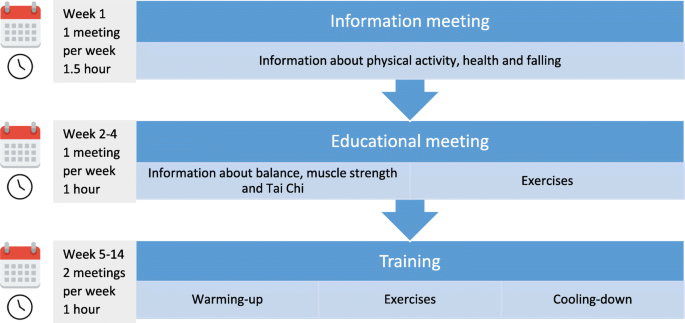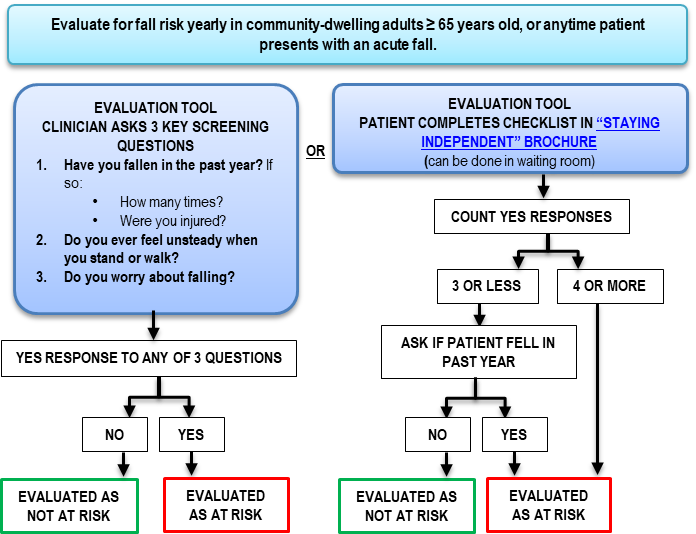The Greatest Guide To Dementia Fall Risk
The Greatest Guide To Dementia Fall Risk
Blog Article
Dementia Fall Risk Can Be Fun For Everyone
Table of ContentsTop Guidelines Of Dementia Fall Risk5 Simple Techniques For Dementia Fall RiskLittle Known Facts About Dementia Fall Risk.Dementia Fall Risk Can Be Fun For Everyone6 Easy Facts About Dementia Fall Risk Described
Assessing fall threat helps the entire healthcare group create a safer atmosphere for each client. Guarantee that there is a designated location in your clinical charting system where staff can document/reference scores and record relevant notes connected to drop prevention. The Johns Hopkins Fall Threat Analysis Tool is among numerous devices your team can utilize to help prevent negative medical events.Person falls in healthcare facilities prevail and devastating negative occasions that continue despite years of effort to decrease them. Improving communication throughout the evaluating registered nurse, care group, client, and individual's most involved friends and household might enhance fall prevention initiatives. A team at Brigham and Women's Hospital in Boston, Massachusetts, sought to develop a standard fall avoidance program that focused around improved communication and person and family involvement.

The technology team highlighted that effective implementation depends upon individual and staff buy-in, combination of the program into existing process, and integrity to program processes. The group noted that they are facing how to make certain connection in program implementation throughout durations of dilemma. Throughout the COVID-19 pandemic, for example, a boost in inpatient falls was connected with constraints in client involvement along with limitations on visitation.
Rumored Buzz on Dementia Fall Risk
These occurrences are typically thought about avoidable. To carry out the treatment, organizations need the following: Access to Loss pointers resources Autumn pointers training and re-training for nursing and non-nursing personnel, including new nurses Nursing process that permit client and family engagement to perform the drops assessment, guarantee use the avoidance strategy, and carry out patient-level audits.
The results can be highly detrimental, typically increasing client decrease and triggering longer hospital stays. One study approximated remains increased an added 12 in-patient days after an individual fall. The Loss TIPS Program is based upon interesting clients and their family/loved ones throughout 3 primary processes: evaluation, personalized preventative interventions, and bookkeeping to make sure that clients are taken part in the three-step autumn prevention procedure.
The client assessment is based upon the Morse Fall Scale, which is a validated autumn threat analysis device for in-patient medical facility setups. The scale consists of the six most typical reasons people in hospitals drop: the patient autumn history, high-risk problems (consisting of polypharmacy), use IVs and other external tools, psychological standing, stride, and movement.
Each danger aspect relate to one or even more actionable evidence-based interventions. The registered nurse develops a plan that includes the treatments and is noticeable to the care group, patient, and household on a laminated poster or published visual aid. Nurses develop the strategy while fulfilling with the client click now and the individual's family members.
The Facts About Dementia Fall Risk Uncovered
The poster acts as an interaction tool with other members of the patient's treatment group. Dementia Fall Risk. The audit part of the program consists of examining the individual's understanding of their risk elements and prevention plan at the device and healthcare facility levels. Nurse champs conduct at least 5 private interviews a month with patients and their family members to look for understanding of the autumn prevention plan

An estimated 30% of these drops lead to injuries, which can range in severity. Unlike various other negative events that call for a standard medical reaction, autumn avoidance depends very on the requirements of the patient. Consisting of the input of people who recognize the client finest allows for better modification. This method has verified to be much more effective than loss avoidance programs that are based primarily on the manufacturing of a danger rating and/or are not adjustable.
All About Dementia Fall Risk

Based on bookkeeping outcomes, one website had 86% compliance and two websites had more than 95% compliance. A cost-benefit evaluation of the Autumn ideas program in 8 medical facilities approximated that the program cost $0.88 per client to carry out and caused cost savings of $8,500 per 1000 patient-days in straight prices associated to the avoidance of 567 falls over three years and eight months.
According to the technology team, organizations thinking about carrying out the program should carry out a preparedness analysis and check my reference drops avoidance voids analysis. 8 Additionally, organizations need to ensure the necessary facilities and process for application and establish an application strategy. If one exists, the company's Autumn Avoidance Job Force ought to be included in planning.
An Unbiased View of Dementia Fall Risk
To begin, companies ought to make sure completion of training components by registered nurses and nursing a knockout post assistants - Dementia Fall Risk. Healthcare facility personnel should analyze, based upon the needs of a health center, whether to utilize an electronic wellness document printout or paper variation of the autumn prevention strategy. Applying groups ought to hire and educate nurse champs and develop processes for auditing and reporting on loss information
Team require to be entailed in the procedure of upgrading the process to involve clients and family members in the assessment and prevention plan procedure. Solution ought to remain in place so that devices can understand why a loss occurred and remediate the reason. Extra especially, registered nurses must have channels to supply continuous feedback to both staff and unit leadership so they can adjust and boost loss avoidance operations and connect systemic issues.
Report this page